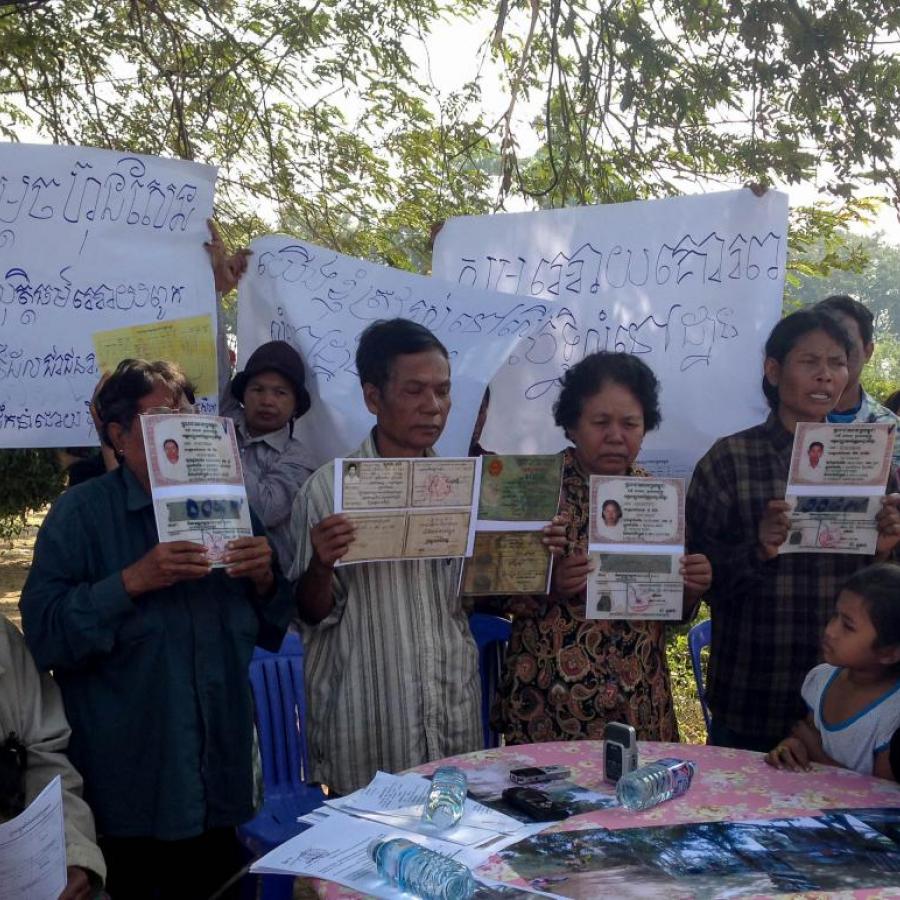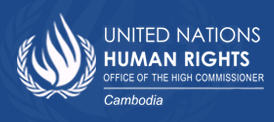Economic and other land concessions

A land concession is a contract between the Government and another actor that gives specific rights to control an area of land for a fixed period of time and for the conduct of specific activities in that area. Although concessions are often granted for long periods of time and concessionaires may be granted exclusive rights to use the land, a concession does not grant full ownership rights and the land remains the property of the State. Specifically, an economic land concession, or ELC, is a long-term lease that allows the beneficiary to clear land in order to develop industrial agriculture. To date, ELCs have been granted for various activities, including large-scale plantations, raising animals and building factories to process agricultural products. There have also been concessions granted for mining, port and fishing purposes, and for tourism. Concessions continue to impact negatively upon the human rights and livelihoods of rural communities who depend upon land and forest resources for their survival. Commonly-cited concerns are encroachment on agricultural and grazing land, and loss of livelihoods; encroachment on forested areas and loss of access to non-timber forest products; impact on areas of cultural and spiritual significance; displacement; and environmental destruction. Since 1996, successive Special Representatives of the Secretary-General for human rights in Cambodia have expressed concern about the impact of economic land concessions on the human rights and livelihoods of rural communities.
OHCHR has contributed substantially to research and advocacy on the granting and management of economic and other land concessions (including concessions related to the agro-industry, mining, hydropower dams and other large-scale infrastructure projects) and the human rights impact of concessions, especially in recognized protected areas. In view of the absence of complete official data made available by the Ministry of Agriculture, Forestry and Fisheries and other government entities, OHCHR convened regular consultations with civil society organizations and researchers, and contributed to meetings with development partners, encouraging improved access to information and data collection., It also encouraged cooperation on advocacy issues with regard to the national land titling campaign (implementation of Directive 001) and on land concessions in general. OHCHR provided financial support for a non-governmental open-data source, which makes available in one location information on land concessions by province and by company, and includes briefings on thematic issues. In accordance with its mandate, OHCHR supported the work of the Special Rapporteur on the situation of human rights in Cambodia on land concessions, and is following up on his recommendations in that regard.
Reports on ELCs and other land concessions by the Special Rapporteurs on Cambodia:
Assessing the Impact of Social Land Concessions on Rural Livelihood in Cambodia, 2018
A human rights analysis of economic and other land concessions in Cambodia, 2012
Economic land concessions in Cambodia - a human rights perspective, 2007
Land concessions for economic purposes in Cambodia - a human rights perspective, 2004
See our factsheet on Social Land Concessions in Cambodia
Watch a video with essential information on how to apply for a social land concession in Cambodia.

 A land concession is a contract between the Government and another actor that gives specific rights to control an area of land for a fixed period of time and for the conduct of specific activities in that area. Although concessions are often granted for long periods of time and concessionaires may be granted exclusive rights to use the land, a concession does not grant full ownership rights and the land remains the property of the State. Specifically, an economic land concession, or ELC, is a long-term lease that allows the beneficiary to clear land in order to develop industrial agriculture. To date, ELCs have been granted for various activities, including large-scale plantations, raising animals and building factories to process agricultural products. There have also been concessions granted for mining, port and fishing purposes, and for tourism. Concessions continue to impact negatively upon the human rights and livelihoods of rural communities who depend upon land and forest resources for their survival. Commonly-cited concerns are encroachment on agricultural and grazing land, and loss of livelihoods; encroachment on forested areas and loss of access to non-timber forest products; impact on areas of cultural and spiritual significance; displacement; and environmental destruction. Since 1996, successive Special Representatives of the Secretary-General for human rights in Cambodia have expressed concern about the impact of economic land concessions on the human rights and livelihoods of rural communities.
A land concession is a contract between the Government and another actor that gives specific rights to control an area of land for a fixed period of time and for the conduct of specific activities in that area. Although concessions are often granted for long periods of time and concessionaires may be granted exclusive rights to use the land, a concession does not grant full ownership rights and the land remains the property of the State. Specifically, an economic land concession, or ELC, is a long-term lease that allows the beneficiary to clear land in order to develop industrial agriculture. To date, ELCs have been granted for various activities, including large-scale plantations, raising animals and building factories to process agricultural products. There have also been concessions granted for mining, port and fishing purposes, and for tourism. Concessions continue to impact negatively upon the human rights and livelihoods of rural communities who depend upon land and forest resources for their survival. Commonly-cited concerns are encroachment on agricultural and grazing land, and loss of livelihoods; encroachment on forested areas and loss of access to non-timber forest products; impact on areas of cultural and spiritual significance; displacement; and environmental destruction. Since 1996, successive Special Representatives of the Secretary-General for human rights in Cambodia have expressed concern about the impact of economic land concessions on the human rights and livelihoods of rural communities.